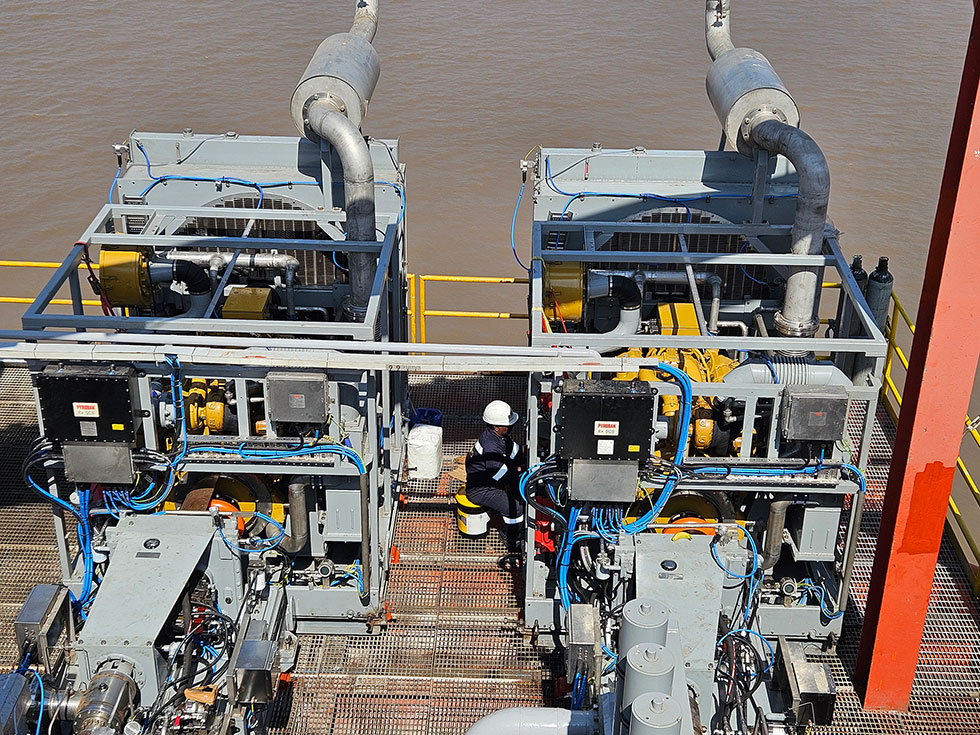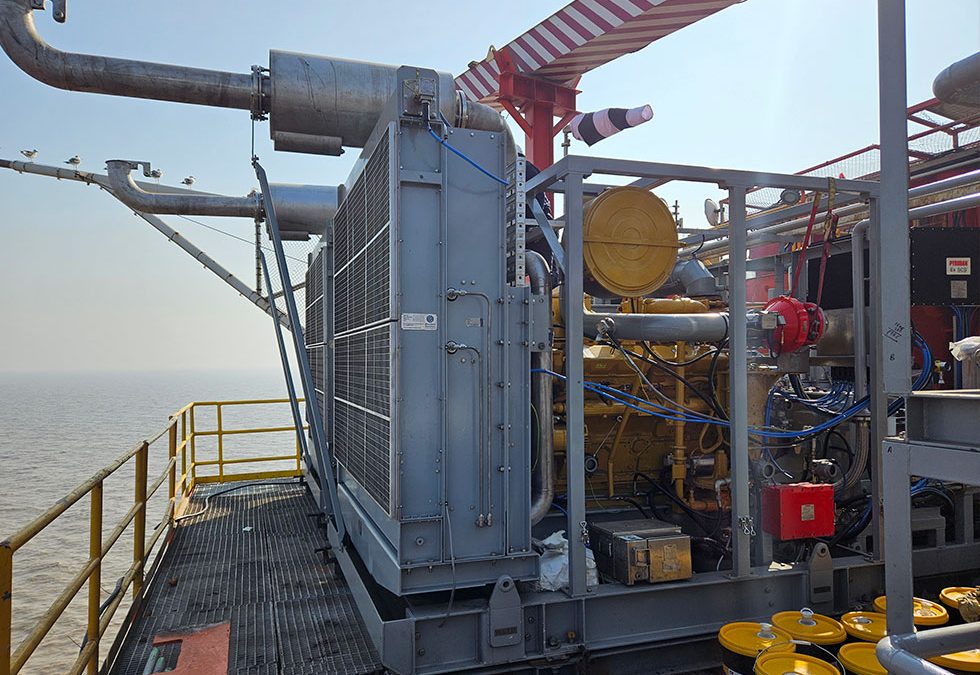With recent reports of a growing number of North Sea oil and gas operators facing financial penalties for flaring or venting, a new breed of explosion proof gas engines could provide the answer to an industry wide problem.
“In 2024 we commissioned what is thought to be the first explosion proof natural gas engines operating in Zone 2 hazardous areas offshore,” says Lewis Cleary from explosion protection safety company Pyroban in the UK. “And the interest is growing, probably because authorities are intensifying efforts to minimise gas flaring and improve emissions offshore.”
Penalties are expected to increase significantly globally, so offshore operators are keen to implement measures that will prevent future flaring or venting breaches. Venting means the methane gas is not captured or burned, but simply allowed to escape into the environment, which is considered pollution. Flaring is when it is burnt off.
“The idea is to make use of the natural gas rather than releasing it directly into the atmosphere from an offshore oil and gas platform,” says Lewis.
“It can be particularly useful on unmanned platforms where the need for continuous diesel deliveries is eliminated and manned maintenance visits can be extended further.”
A gas engines’ ignition hazards are carefully assessed and, using Pyroban’s flameproof inlet and exhaust systems, gas detection and coating technologies for hot surfaces, a Zone 2, Gas Group IIA, Temperature Class T3 solution can be achieved that won’t ignite the atmosphere.

Lewis Cleary from explosion protection safety company Pyroban in the UK
Lewis explains that offshore installations have traditionally used explosion proof diesel engines to power lots of different equipment. Electrification is an alternative, but it’s not often possible because there is not usually enough electric power available offshore.
Natural gas engines, especially those using liquefied natural gas (LNG), produce significantly lower emissions compared to diesel engines. This includes reductions in CO2, NOx, SOx and particulate matter, making them more environmentally friendly.
Gas engines can also be more cost-effective in the long run due to lower fuel costs and higher efficiency. Of course, oil and gas installations will be making use of wasted gas, so making their fuel costs free.
Penalties for venting and flaring are part of a strategy to encourage responsible operations offshore which will lead to growing confidence in the sector’s environmental performance. The UK North Sea Transition Authority (NSTA) recently reported flaring or venting consent breaches now total £825,000, since 2022.
Pyroban is a British business that has been at the forefront of explosion protection technologies since the beginning of the 1970s and is supporting industry with hazardous area safety solutions as it faces the global energy transition.
For more information contact Pyroban’s technical team on +44 (0) 1273 456800 or info@pyroban.com, or visit www.pyroban.com.

Example of explosion proof natural gas engines operating in zone 2 hazardous areas offshore featuring Pyroban technology
